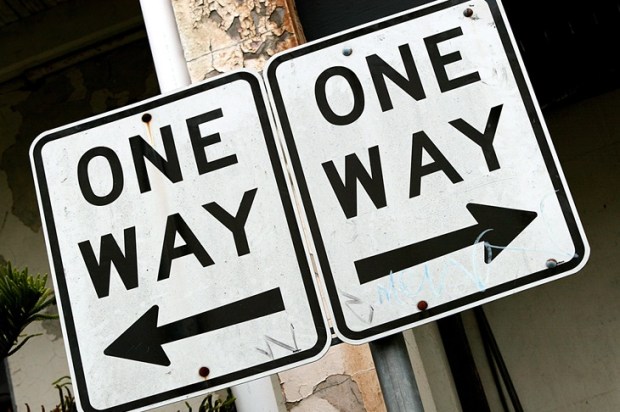The more that we talk about work/life balance and diverse and inclusive workplaces, the unhappier we seem to be.
Over the last two decades, and especially most recently, corporate Australia has gone into overdrive with many measures aimed at improving workplace culture. New OHS practices, EAP hotlines, mental health initiatives, the commemoration of so many days for various causes, LGTBIQ committees, millennial mentoring, working-from-home arrangements (amplified by COVID), empathy training for managers, fruit bowls, in-house yoga sessions, internal comms strategies…
At the same time, presentations for mental and emotional health reasons in the overall community are very significantly up, including the further spike of some 30 per cent during the last year. There’s every reason to believe that this trend is mirrored in workplaces themselves.
Here’s a couple of gathered stories and experiences:
- Mates have told me that they avoid the bathrooms in their own workplaces because there’s too often someone sobbing behind a closed stall door.
- Mental health is ranked as the number one issue raised by staff in many employee feedback surveys.
- As Lifeline CEO, I once asked a room of 800 corporate leaders in the Wentworth Hotel’s ‘bunker’ who was feeling lonely right there and then. I got 80 per cent hands in the air from Australia’s suits – and no one seemed surprised.
- I know of one psychopath who used a ‘let’s get to know each other’ bonding session with fellow executives to glean damaging personal information about them.
- We read of The Great Resignation from professional roles in the USA; three major Australian professional services firms tell me it’s now started here.
- According to Safe Work Australia, from 2000 to 2018, the number of workers’ compensation claims for mental health conditions increased by 51 per cent. By 2018, they accounted for 68 per cent of all disease-related claims.
- Safe Work Australia also notes the average time taken off work for mental health-related claims increased by 86 per cent between 2000 and 2017. The costs of mental health-related claims also increased exponentially by 209 per cent.
- Our modern obsession with risk management, combined with ‘keeping everyone in the loop’ is making corporate people work harder than ever. Each word and sentence is subject to extraordinary lengths of review, consultation and clearance.
WTF? Is demand for a mentally healthy workplace exceeding supply and effort? How is it possible that all these initiatives and resources don’t seem to be achieving much? Or, as the Black Dog Institute recently asked in a major report: ‘Is modern work making Australians mentally unwell?’
They believe the answer is ‘yes’ and cite evidence of the increased impacts of digitisation and casualisation in particular and especially among younger people.
I buy it. Less human contact in the workplace and less security about work cannot help.
And, I think it’s something else that’s contributing to the annual $39 billion cost (according to the Productivity Commission) of poor mental health in our workplaces.
Namely, modern workplaces – especially corporate ones – are an awful amalgam that makes people stressed and sick.
On the one hand, there are constant messages and methods aimed at better including people and better looking after them. There is an initiative, a program, or a day for everything.
On the other hand, it seems to me that, in the name of good and worthy intentions like keeping people engaged and safe, we have perhaps excessively sanitised workplaces and removed all traces of our messy humanity.
The norm seems to be that workplaces are now lacking in individual expression, friendship and camaraderie, and playfulness and personality, and the other things that made them liveable. Woke work is heartless and inauthentic work.
When did Friday Night Drinks die? Where is it buried?
Truthfully, just as Swinburne finds that 51 per cent of us are worried about automation, we actually don’t need to be replaced by robots. We’ve already started to act like them and it’s hard on our well-being because we’re made from more than circuit boards.
Young people look at me unbelievably when I talk about playing hallway cricket with colleagues in a NSW Premier’s Office after a 14 hour day and a shared slab of Toohey’s New. They think me weird…
But I think what’s weird is the dissonance they deal with daily. The subtext of their working lives is: ‘We want you to feel good about yourself, be safe, and have a sense of belonging here. But please don’t actually be yourself or say anything that might be remotely controversial.’
Be empowered and be conformist.
Huh? No wonder younger employees especially can’t cope with this mixed messaging – this gap between set expectations and what they can actually say or do.
Polite veneers and careful language may be making some of us sick.
Is this a defence of the excesses that people of my generation saw in the seventies, eighties, and nineties? Is this a reflection of my ‘old white male privilege’?
Not a snowflake’s chance in Darwin.
No one should be sentimental about those days of misogyny, harassment, abuse, bullying, and alcohol-fuelled inappropriate behaviour. It really sucked and people got hurt; it is condemnable and we must be better.
But it’s also not right for people to get hurt now by perhaps an overcompensation for past wrongs. If we want mentally and emotionally healthier workplaces – and more productive ones – we will need to find a new way to both speak and behave more respectfully and honestly with each other – not just do ‘woke performances’.
It can be argued that we have put form before function. A whole elaborate architecture to support employees’ emotional lives has been constructed. But perhaps what’s missing is its very foundation: emotional integrity.
The truth is we are, in fact, messy creatures. While we of course have to mask much of our messiness for the sake of the greater good, our own survival and the social contract – or employee agreement – it’s unrealistic to fully erase our humanity and individuality.
Let’s not put more woke into work; let’s put more heart back into it.
Pete Shmigel writes, coaches, advocates for mental health and serves on boards after surviving three CEO gigs and professional politics.
Got something to add? Join the discussion and comment below.
Get 10 issues for just $10
Subscribe to The Spectator Australia today for the next 10 magazine issues, plus full online access, for just $10.


























Comments
Don't miss out
Join the conversation with other Spectator Australia readers. Subscribe to leave a comment.
SUBSCRIBEAlready a subscriber? Log in